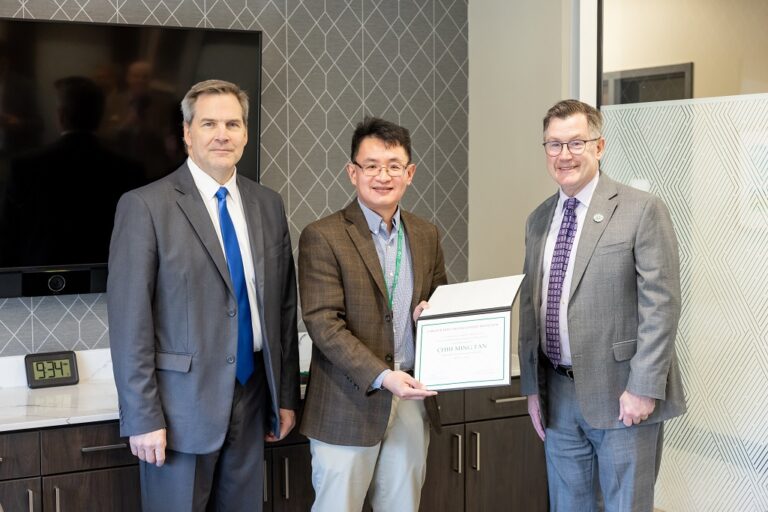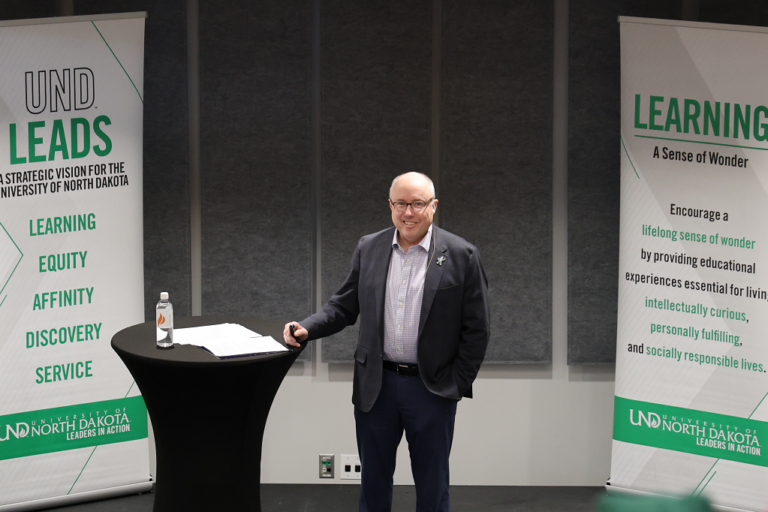World’s first Department of Indigenous Health
New department will serve as hub of Indigenous programs at UND School of Medicine & Health Sciences

The School of Medicine & Health Sciences (SMHS) at the University of North Dakota is proud to announce the creation of the world’s first Department of Indigenous Health.
“What’s being built here is unprecedented,” said Dr. Don Warne. “Nothing like this exists in the world.”
Fresh off establishing the world’s first doctoral program in Indigenous Health in 2020, the director of the School’s public health and Indians into Medicine (INMED) programs was speaking of a new department that will serve as a hub for each of the Indigenous programs that have come online at the SMHS since 2019. These include not only the Ph.D. in Indigenous Health but the recently announced Indigenous Trauma & Resilience Research Center, the result of a five-year, $10 million award from the National Institutes of Health, and the School’s new Practice-based research network (PBRN) to be known as the American Indian Collaborative Research Network (AICoRN).
“We have a longstanding history of Indigenous programs at UND, beginning with INMED,” said Warne of a program that has been producing Indigenous health providers since 1973. “Adding this full department in a medical school, we now have the opportunity to promote more synergy across our research, education, service, and other training opportunities that focus on Indigenous health and health equity. It creates a unique platform to expand the innovative work we’re already doing, and explore more innovative programs.”

Such innovations include AICoRN, which is a growing network of health providers in the region looking to do clinical research in a focused, community-based way.
According to AICoRN director Dr. Allison Kelliher, who found the prospect of conducting collaborative work in the context of a standalone Department of Indigenous Health too compelling to pass up, although PBRNs are not a new concept nationally, there were zero such networks representing the Dakotas, Montana, and Wyoming.
Until now.
“We’re developing that network of practices and providers interested in creating a body of research and pursuing questions to benefit Indigenous population health,” said Kelliher, a family medicine physician affiliated with the Koyukon Athabascan tribe, who is also board certified in integrative and holistic medicine. “This will require partnership with as many tribal stakeholders as are interested: tribal, urban, and Indian Health Service settings across our four states, in addition to collaborating internationally.”
As Kelliher put it, not only clinical but laboratory-based research often takes “a couple of decades,” historically speaking, to translate into real-time therapies for patients. But PBRNs like AICoRN – particularly if combined with the School’s new Department of Indigenous Health – can help reduce that lag time.
“We need to build the evidence base of culturally relevant interventions to improve health outcomes, which can lead to more resources for our communities to implement effective health programs,” concluded Warne, an enrolled member of the Oglala Lakota Tribe in Pine Ridge, S.D. “The other focus of this program will be to provide research mentorship to early career faculty and to establish them as independent investigators. This will lead to ripple effects in terms of additional grants, studies, resources, and programs through UND.”
Dr. Joshua Wynne, vice president for Health Affairs at UND and dean of the SMHS, lauded the concept of the new department.
“One of my favorite sayings is that an organization is not just what it says—it’s what it does that really matters,” said Wynne. “Yet again, Dr. Warne and his colleagues are putting principle into practice and are implementing programs and approaches that are almost certain to have a material and important impact on the lives of Indigenous people. By improving the lives of some of us, he and his colleagues are improving the lives of all of us.”

About the author
Brian James Schill is the assistant director of the Office of Alumni and Community Relations at the University of North Dakota School of Medicine & Health Sciences.


